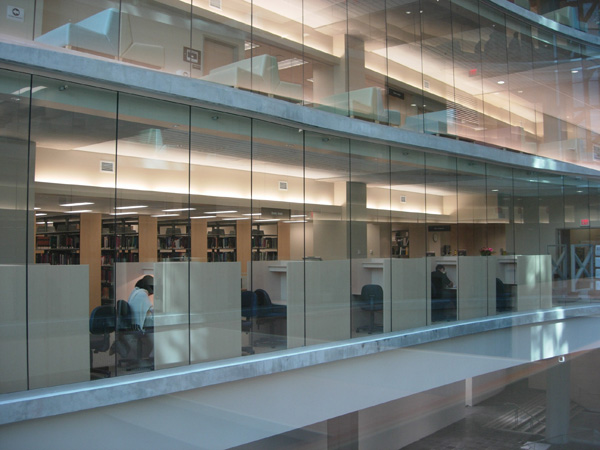Introducing Dean Giustini, a medical librarian at the University of British Columbia, an advocate for reproducibility and grey literature searching, and our newest Librarian Spotlight!
Working to advance research reproducibility at your institution? Apply for our Librarian Travel Award for your chance to attend the Charleston Conference in November, 2017. Deadline for submissions is August 18, 2017.
—
Dean Giustini is a medical librarian at the University of British Columbia’s Biomedical Branch Library at the Vancouver General Hospital and St. Paul’s Hospital. As an academic medical librarian, he serves the needs of 10,000 patrons and does research into grey literature and research reproducibility.
We sat down with Dean to discuss his initiatives, learn how JoVE is helping the UBC community, and find out how medical librarians are rising to face the challenges on the horizon.
 Why did you choose to become a librarian?
Why did you choose to become a librarian?
I’ve been a medical librarian for 30 years and pretty much always knew I wanted to be one. Working alongside doctors and helping to advance their research and information practices was always something that I was drawn to, even though I came from a humanities background.
Who are your typical patrons? How many people does your library serve?
I support both the Vancouver General Hospital and St. Paul’s Hospital in Vancouver Canada.We probably serve about 10,000+ professionals but focus on undergraduate medical students, residents, and hospital staff. As a result, the UBC library at the Vancouver hospital has had to develop a very diverse collection to be able to provide for all our patrons’ distinct specialties.
 How has your JoVE subscription impacted your patrons?
How has your JoVE subscription impacted your patrons?
We’re regularly looking at and monitoring JoVE. Visualization is an important new area in medicine and science. Visual information is a good supplement to other forms and offers transparency which is clearly valued by our users. We see a lot of usage of the JoVE resources we subscribe to and get a lot of requests for access to additional sections.
Happy to hear it! Aside from resources, can you walk me through some of the services you and the UBC library offer to support your patrons?
We always try to provide the most comprehensive support possible, because our patrons could approach us with requests that range from “I need to confirm something” to “I need to find absolutely everything on this topic”. We’re very fortunate, as the UBC library is very accessible to students and faculty so we get a good amount of usage and have arranged the hospital library-space to accommodate small group learning as well as private spaces where students can do research. Additionally, I’ve helped to develop teaching programs that educate students on how to best utilize library resources, develop good researching strategies, advance research reproducibility, and better understand grey literature.
 Can you explain what grey literature is and what value it can bring to science?
Can you explain what grey literature is and what value it can bring to science?
Grey literature is the term used for any document that’s relevant to research and systematic reviews of research topics but is unpublished and unindexed. Since these materials aren’t found in MEDLINE or PubMed they’re often overlooked. This can be an issue because there are some cases where information in the grey literature can directly affect the conclusions reached in systematic reviews. At UBC, I do a lot of work to increase awareness of grey literature and to encourage standardization in how these documents are referenced and the transparency of the methods used to access them so that these methods can be reproduced.
Is this work what made you interested in reproducibility?
I’ve been aware of the reproducibility crisis for a long time, as it comes up in my work in medicine. I think what first got me interested was hearing about the impact of the situation through outlets like the JoVE blog and seeing how widespread it was becoming – particularly in psychology. It really shows that we need to be doing more when we design and conduct research. For some time, I’ve tried to raise awareness in my workshops and in my writing about what reproducibility means for medicine (and medical librarians) and discuss how we can make progress.

What challenges do you see on the horizon for medical librarians?
Digitization is a huge driver in how we conduct research and how treatment decisions are made. Medical librarians need to be able to stay current with information technologies and expert search techniques. With increasing digitization comes encroachment on physical library spaces, budgets, and staffing that can prove to be a serious challenge. It’s crucial for librarians to demonstrate their value and the value of libraries in evidence-based terms.
What’s one thing librarians can do to best support scientific research and education?
Be a part of the process. Be equal partners in research with the medical or clinical team. Raise awareness of what libraries and librarians can do in medicine and make it clear that medical librarians add value to scientific research.
– –
Working to advance research reproducibility at your institution? Apply for our Librarian Travel Award for your chance to attend the Charleston Conference in November, 2017. Deadline for submissions is August 18, 2017.


